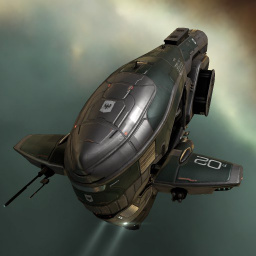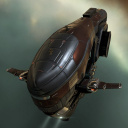Difference between revisions of "Navitas"
(Add more detailed reasoning on skills and tip to stay with other logi pilots) |
m (Replace link to deprecated class to CORE class.) |
||
| Line 97: | Line 97: | ||
==Tactics== | ==Tactics== | ||
| − | New Navitas pilots should read the [[Logistics#Logistics_organization_and_tactics|Tactics section of the UniWiki’s Logistics guide]], and attend a [[Logistics | + | New Navitas pilots should read the [[Logistics#Logistics_organization_and_tactics|Tactics section of the UniWiki’s Logistics guide]], and attend a [[Logistics (CORE class)]]; these will provide some details on how to fly logistics frigates. Some tips on flying the Navitas: |
* '''Watch your capacitor, and deactivate modules when they aren't needed.''' As explained above, you may not have enough capacitor to run every module, all the time. When you first land at an engagement, you’ll need to use your MWD to position yourself relative to the fleet. But then, once you are in position, you won’t need your MWD any more. Remember to turn it off! | * '''Watch your capacitor, and deactivate modules when they aren't needed.''' As explained above, you may not have enough capacitor to run every module, all the time. When you first land at an engagement, you’ll need to use your MWD to position yourself relative to the fleet. But then, once you are in position, you won’t need your MWD any more. Remember to turn it off! | ||
Revision as of 11:32, 1 September 2022
Bold text

RELATED UNI-WIKI REFERENCES
|
In YC114 each major empire faction, having been embroiled in a harrowing, extensive, long-term war, recognized the growing need for support and logistics functionality in their vessels during the kind of protracted interstellar warfare that might otherwise prove exhausting for its participants. In the Gallente Federation, this led to the redesign and redeployment of the Navitas. SHIP BONUSES
Gallente Frigate bonuses (per skill level):
Ship Attributes
|
Summary
The Navitas is the Gallente Logistics Frigate; Navitas pilots repair their fleetmates’ ships during battle. The Navitas is bonused for remote armor repair, which matches the Gallente racial focus on armor tanking. The ship’s bonuses to remote armor repairer amount, activation, and range make the underwhelming base stats of small remote armor repairers practically useful. Flying the Navitas is a great first step in learning about Logistics. Navitas pilots often go on train into heavier Tech I logistics cruisers (such as the Gallente Exequror), and then Tech II logistics ships (including the Thalia and Oneiros). But the Navitas is also effective all on its own, especially as a component of frigate or destroyer gangs, where speed is key.
One defining challenge of flying Tech I logistics frigates in general, and the Navitas in particular, is sustaining enough capacitor to run the ship. Remote repair modules are extremely cap-intensive, so the Navitas is typically fit to boost available capacitor—with cap rechargers in mid slots, capacitor control circuit or remote repair augmentor rigs, and, if necessary, “Enduring” remote armor repairers (which consume less cap). Training character skills that boost capacitor will also help. It might seem that fitting the Navitas with an afterburner instead of a microwarpdrive (MWD) could spare some capacitor. But the Navitas needs to keep up with its small-ship fleetmates in order to repair them, so it usually needs an MWD. Pilots fitting the Navitas should use the in-game fitting simulation window, or an out-of-game tool like Pyfa, to match any fit to their specific skills and to gauge the ship’s cap stability. (This also means you may need to swap out modules on any pre-fit Navitas hulls that you purchase on corp contracts, to make them work with your skills.)
Compared to the Amarr Inquisitor—the other Tech I armor logistics frigate—the Navitas has less tank and less native capacitor. The Navitas is fine, but frigate logi pilots are encouraged to cross-train into the Amarr logistics frigate if they can.
Skills
The following are some basic skills that will let you run a basic fit on the Navitas:
Remote Armor Repair Systems I
Energy Grid Upgrades II
Afterburner I
Hull Upgrades II
To be a more effective Navitas pilot:
- The most important single skill is Gallente Frigate. This will both reduce remote armor repairers' capacitor requirements and boost their effectiveness at once.
- Train Remote Armor Repair Systems to III for T2 remote armor repairers or any level to reduce their capacitor requirements.
Tactics
New Navitas pilots should read the Tactics section of the UniWiki’s Logistics guide, and attend a Logistics (CORE class); these will provide some details on how to fly logistics frigates. Some tips on flying the Navitas:
- Watch your capacitor, and deactivate modules when they aren't needed. As explained above, you may not have enough capacitor to run every module, all the time. When you first land at an engagement, you’ll need to use your MWD to position yourself relative to the fleet. But then, once you are in position, you won’t need your MWD any more. Remember to turn it off!
- Likewise, as your fleetmates start to take damage, it’s easy to overreact by activating all three repairers at once. Instead, try to activate them gradually, one by one, to see if you can spare capacitor by running just one or two. And if you need to switch targets—say, because the enemy fleet has changed their primary—again, switch gradually.
- Stay moving, behind your fleetmates. One advantage of the Navitas is its small signature radius, which makes the ship difficult to hit. But this is only an advantage if you aren’t sitting still, so always be moving. Given this, you might be tempted to right-click your repair target and “Orbit at…” your optimal range. Keep in mind, though, that this will sometimes send your fragile frigate closer to the enemy than the damage dealers. Better, instead, to manually fly in a ring orbit behind the fleet, so that you keep range and stay out of the action. Make sure you stay near other logi pilots in case you need to repair each other - separating logi on either side of your fleet can make logi a target.
Notes
You can add notes here.


